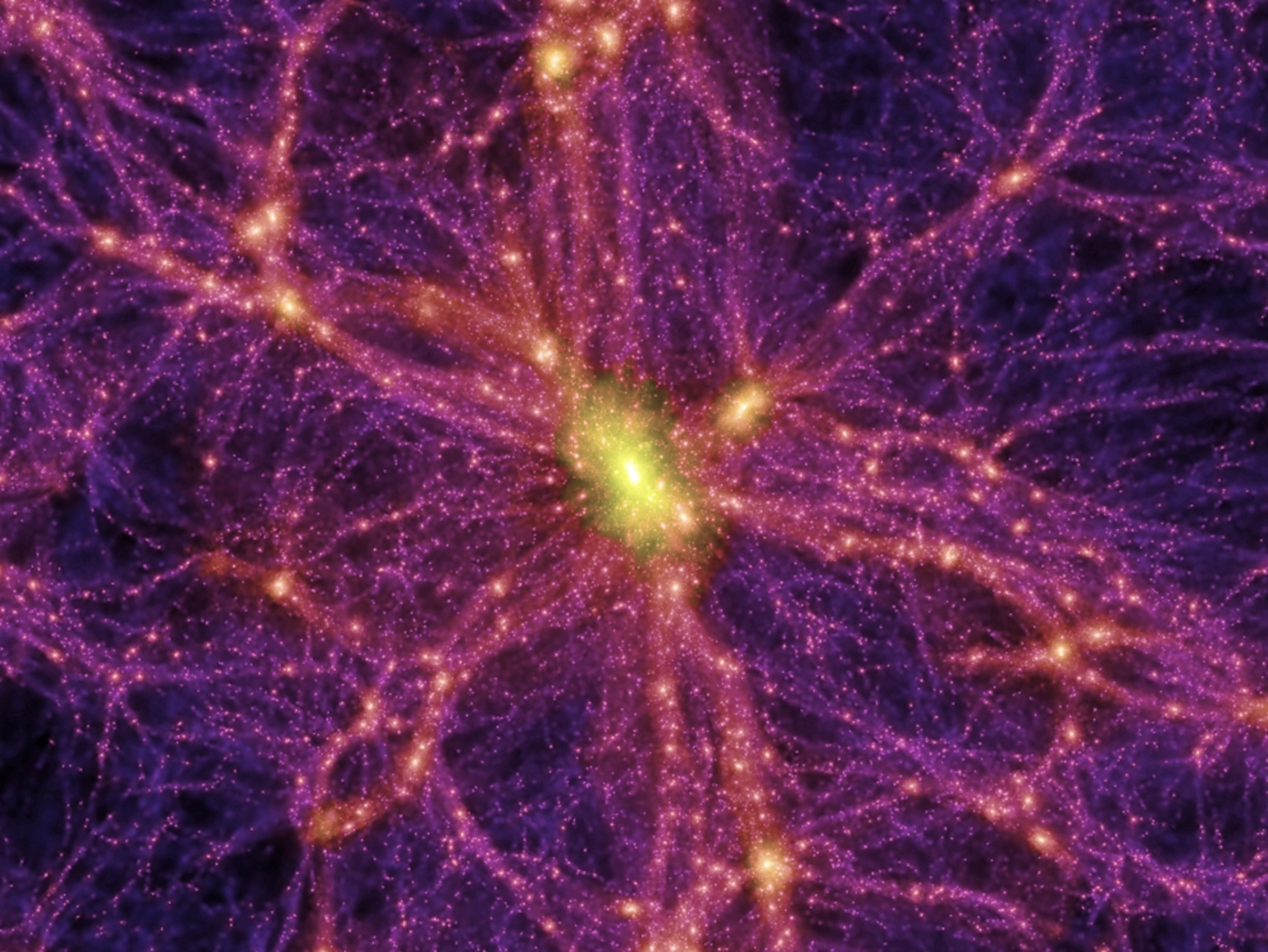Dark energy plays a fundamental role in shaping our understanding of the universe, yet its mysterious nature continues to perplex astronomers. Recent findings from the Dark Energy Spectroscopic Instrument (DESI) collaboration, which includes top researchers from Harvard, have raised important questions about the behavior of dark energy and its role in the cosmos. Traditionally considered a “cosmological constant,” dark energy is thought to drive the accelerating expansion of the universe, impacting everything from galaxy evolution to the very fabric of space itself. The ongoing analysis of data from more than 14 million galaxies offers crucial insights into how dark energy may be evolving over time. As we delve deeper into these studies, the implications of dark energy analysis may challenge existing theories and reshape our understanding of the universe’s fate and future expansion.
Fundamental to cosmology, the enigmatic force often referred to as dark energy has prompted extensive research into the nature and expansion of the universe. This elusive phenomenon, sometimes aligned with the concept of a cosmological constant, is instrumental in driving the cosmos apart at an accelerating pace. The collaborative efforts of scientists under initiatives like the Dark Energy Spectroscopic Instrument are crucial for unraveling its complexities, as they explore the interplay between this force and the over-arching evolution of galaxies. As researchers sift through extensive data and strive for deeper understanding, the implications of their findings could reshape our grasp of cosmic dynamics. Ultimately, the quest to decipher dark energy’s role in the universe illuminates critical avenues of inquiry in modern astrophysics.
Understanding Dark Energy: A Fundamental Force in Cosmology
Dark energy is a term used to describe an enigmatic force that is fundamentally altering our understanding of the universe. It constitutes approximately 68% of the universe’s total energy density, yet its nature remains elusive. Research from the Dark Energy Spectroscopic Instrument (DESI) collaboration has suggested that this force, often considered a cosmological constant, is not as constant as previously believed. As scientists delve deeper into dark energy analysis, they are uncovering evidence that it may be growing weaker over time, prompting a reevaluation of the foundational models used to explain the acceleration of the universe’s expansion.
The role of dark energy in cosmic evolution cannot be overstated. It is intricately linked to the expansion rate of the universe and affects how matter is distributed across cosmic structures. The dark energy hypothesis has generated significant attention in the field of astrophysics as researchers like those at the Center for Astrophysics | Harvard & Smithsonian aim to decode its implications for the future of cosmic evolution. As new data from DESI becomes available, researchers are poised to refine their understanding of this mysterious force and its impact on the universe’s fate.
The Role of DESI in Expanding Our Cosmic Knowledge
The Dark Energy Spectroscopic Instrument (DESI) plays a pivotal role in advancing our understanding of the cosmos. By constructing one of the largest 3D maps of the universe, DESI enables astronomers to examine the influence of dark energy on galaxy formations over the past 11 billion years. This astronomical survey involves collaboration from more than 900 researchers worldwide, showcasing a determined effort to unlock the secrets of the universe’s expansion dynamics. The data collected not only aids in understanding dark energy but also furthers studies into galaxy evolution, the cosmic web, and the intricate structure of the Milky Way.
With its first batch of data now publicly available, DESI opens the door for researchers to engage with millions of celestial objects, providing critical information that can reshape theories about the universe’s development. The ability to map out the distribution of galaxies and the influence of dark energy enhances our comprehension of how cosmic structures form and evolve. As research using DESI’s data continues, we may witness revolutionary breakthroughs that could alter the fabric of our cosmic history narratives.
Cosmological Constants: Rethinking the Universe’s Expansion
Traditionally, the cosmological constant was perceived as a fixed value that described the uniform expansion of the universe. However, recent findings from the DESI collaboration indicate that this assumption may need to be revised. As measurements reveal variations in dark energy’s characteristics, scientists are challenged to rethink the cosmological constant’s role in driving the universe’s acceleration. The implications of these findings stretch beyond theoretical physics, impacting our predictions about the future of cosmic expansion.
By integrating diverse data sources and collaborating across international institutions, researchers are uncovering subtle patterns that hint at the evolving nature of dark energy. The evidence suggesting that the cosmological constant may not remain constant forces astrophysicists to explore alternative models that could better explain the dynamics of cosmic expansion. Such a profound shift in understanding could lead to more comprehensive theories that unite quantum mechanics and general relativity, ultimately transforming our grasp of the universe.
Galaxy Evolution: Insights from Dark Energy Research
The investigation of dark energy also provides a unique perspective on galaxy evolution across cosmic time. By analyzing the large-scale structure of galaxies in relation to dark energy observations, scientists can better understand how these celestial bodies have formed and changed throughout history. The correlation between dark energy dynamics and galaxy formation processes is a key focus for astronomers, particularly within the DESI collaboration, which seeks to uncover the factors influencing galaxy evolution at various epochs.
Researchers at the Center for Astrophysics | Harvard & Smithsonian are employing advanced algorithms and simulations to examine these intricate relationships further. Insights from DESI data allow scientists to track how dark energy has impacted galaxy distributions, revealing vital information about the conditions that fostered their development. This research not only helps clarify the evolutionary path of galaxies but also informs theories regarding the overall architecture of the universe.
The Future of Cosmic Research: Collaborative Efforts in Astronomy
The DESI collaboration exemplifies the importance of global teamwork in addressing some of humanity’s most profound scientific questions. Over 900 researchers from 70 institutions are working side by side, pooling their expertise to shed light on the mysteries of dark energy and the universe’s fate. The cross-institutional efforts foster a rich exchange of ideas and methodologies, allowing for a level of analysis and data collection that would be impossible for a single entity. This collaborative approach not only speeds up research but also enhances the quality of outcomes through diverse perspectives.
Looking forward, ongoing collaborations like DESI will be crucial as new technologies and methodologies emerge in astrophysics. The data released from DESI is not just an endpoint but a starting point for numerous research pathways. This spirit of collaboration will likely lead to continued advancements in our understanding of dark energy, galaxy evolution, and other cosmic phenomena, paving the way for groundbreaking discoveries that could redefine our understanding of the universe as we know it.
Unraveling Baryon Acoustic Oscillations: A Dark Energy Tool
Baryon Acoustic Oscillations (BAOs) provide a significant tool in the analysis of dark energy and the expansion of the universe. These oscillations represent sound waves from the early universe that left imprints on the distribution of galaxies, acting as a cosmic ruler to measure distances across the universe. The DESI collaboration plays a crucial role in detecting and analyzing these patterns, which can illuminate our understanding of dark energy’s influence throughout cosmic history.
Through the lens of BAOs, researchers are able to evaluate how the universe’s expansion rate has changed over time, reflecting the effects of dark energy on cosmic structures. The relationship between these oscillations and dark energy plays a vital role in the DESI analysis, enabling a more nuanced understanding of the forces at play in the universe’s growth. As new data emerges, the insights gleaned from BAOs will prove essential in forming a cohesive picture of the universe’s trajectory.
Public Engagement: Education and Awareness About Dark Energy
Engaging the public in the science of dark energy is crucial for fostering greater awareness and understanding of our universe. Researchers like Claire Lamman are dedicated to creating educational materials that translate complex astronomical concepts into accessible formats for the general public. By sharing the findings from the DESI collaboration, these outreach initiatives aim to stimulate curiosity and encourage engagement with cosmology and dark energy research.
By combining science communication efforts with the groundbreaking data from DESI, the conversation around dark energy becomes more inclusive and informative. Public lectures, workshops, and informative content on platforms like social media help demystify the nature of dark energy and its role in the universe’s future. This effort not only educates the public but also inspires the next generation of astronomers and physicists to explore the wonders of the cosmos.
Navigating the Cosmic Web: Dark Energy’s Structural Impact
The cosmic web, a vast network of filaments of dark matter and galaxies, provides a striking visual representation of the universe’s structure. Dark energy plays a critical role in shaping this web through its influence on expansion dynamics. By examining how dark energy affects the formation and distribution of these structures, researchers gain insight into the fundamental characteristics of the universe. The DESI collaboration conducts extensive work in mapping the cosmic web, revealing how it evolves under dark energy’s influence.
Understanding the interplay between dark energy and the cosmic web offers profound implications for theories of galaxy formation and clustering. Moreover, this intricate relationship helps clarify how cosmic structures respond to changes in dark energy’s behavior over time. As scientists at institutions like Harvard and beyond continue to analyze this data, they are uncovering patterns that could redefine our understanding of the universe’s composition and evolution.
The Implications of Evolving Dark Energy: Future Directions
The evolution of dark energy poses significant implications for astrophysics, particularly concerning the fate of the universe. Discoveries suggesting that dark energy could be weakening challenge existing theories and inspire a reexamination of how we conceptualize cosmic forces. The DESI collaboration’s findings are prompting scientists to consider various models of dark energy behavior, which could ultimately lead to new insights about the universe’s expansion.
As it stands, the future directions of research in dark energy are promising and suggest a need for agile scientific inquiry. The implications of evolving dark energy extend beyond the realm of theoretical physics, influencing cosmology, galaxy evolution, and our understanding of fundamental forces. Continued exploration and analysis will be crucial in addressing the pressing questions about our universe’s destiny, ensuring that we remain on the cutting edge of astronomical research.
Frequently Asked Questions
What is dark energy and why is it important for understanding the universe?
Dark energy is a mysterious form of energy that is believed to make up approximately 68% of the universe. It is thought to be responsible for the accelerated expansion of the universe, acting against the gravitational pull of matter. Understanding dark energy is crucial as it fundamentally influences the fate of the universe and the dynamics of galaxy evolution.
How does the DESI collaboration study dark energy’s effects?
The Dark Energy Spectroscopic Instrument (DESI) collaboration studies dark energy by mapping the distribution of matter in the universe. Utilizing the largest 3D cosmic map, DESI measures Baryon Acoustic Oscillations and tracks how dark energy influences galaxy formation and the expansion rate over the past 11 billion years, providing insights into its evolving nature.
What did the recent analysis from the DESI collaboration reveal about dark energy?
Recent analysis from the DESI collaboration suggests that dark energy may be weakening over time, challenging the traditional view of it as a cosmological constant. This finding indicates that the dynamics of the universe’s expansion could be more complex than previously thought, prompting a reevaluation of existing cosmological models.
What role do Baryon Acoustic Oscillations play in dark energy analysis?
Baryon Acoustic Oscillations serve as a standard ruler in dark energy analysis. These oscillations, formed by sound waves in the early universe, create a spatial pattern in the distribution of galaxies. By measuring this pattern across different cosmic distances, scientists can assess the effects and intensity of dark energy throughout the universe’s history.
How does dark energy influence the structure and evolution of galaxies?
Dark energy influences the structure and evolution of galaxies by affecting the rate at which the universe expands. Its repulsive force counteracts gravity, altering how matter clusters and evolves into galaxies. Understanding these interactions helps astronomers explore the cosmic web and the formation processes of galaxies.
What is the significance of DESI’s Data Release 1 for astrophysical research?
DESI’s Data Release 1 provides an extensive dataset featuring detailed information on millions of celestial objects. This release is significant as it aids in various astrophysical researches, including studies on dark energy, galaxy evolution, and ultimately contributes to a more comprehensive understanding of the universe’s structure and dynamics.
How can I get involved or learn more about dark energy research?
To learn more about dark energy research, you can explore resources provided by the DESI collaboration, which regularly publishes findings and datasets on platforms like arXiv. Engaging with educational materials created by outreach committees, such as those led by DESI, can also provide insights, and you may follow events like the American Physical Society’s Global Physics Summit for the latest updates.
| Key Points | Details |
|---|---|
| Dark Energy Analysis | New findings from the Dark Energy Spectroscopic Instrument (DESI) indicate that dark energy might be weakening over time. |
| Collaboration | The DESI project involves 900+ researchers from over 70 institutions worldwide. |
| Baryon Acoustic Oscillations | Patterns in matter distribution that help measure dark energy’s historical impact. |
| 3D Mapping | The largest 3D map of the universe was utilized to assess dark energy over 11 billion years. |
| Future Implications | Findings suggest that the standard model of the universe may need revision due to evolving dark energy. |
| Data Release 1 | Detailed information on millions of celestial objects is now available for exploration. |
Summary
Dark energy is central to our understanding of the universe’s expansion and dynamics. Recent studies by the DESI collaboration have raised significant questions about dark energy, suggesting it may be weakening over time and indicating that our current cosmological models might require adjustments. As researchers continue to map the universe and analyze its evolution, the insights gained from the data collected will not only enhance our knowledge of dark energy but also may profoundly reshape our conception of the cosmos.



